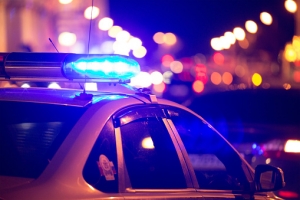Balancing Privacy and Protection: Tennessee Law Enforcement’s Use of Body Cameras and Dash Cams
 In October of 2014, 17-year-old Laquan McDonald was shot 16 times and killed by a police officer in Chicago. The whole event was captured on the dashboard camera of another police patrol car on the scene. The dash cam footage was not released until November 2015, which is 13 months after the incident. The footage was released due to a Freedom of Information Act request on the part of a freelance journalist.
In October of 2014, 17-year-old Laquan McDonald was shot 16 times and killed by a police officer in Chicago. The whole event was captured on the dashboard camera of another police patrol car on the scene. The dash cam footage was not released until November 2015, which is 13 months after the incident. The footage was released due to a Freedom of Information Act request on the part of a freelance journalist.
In the wake of the tragic shooting death of Laquan McDonald in Chicago, and what looks like a cover-up of the police car dash camera video that captured the shooting, the debate continues about the use of body cameras and dashboard cameras by law enforcement, and who should be in control of the footage. About one third of police departments in the United States are starting to use body cameras and many have already been using dash cameras, but there are still many issues with regard to their use, and privacy concerns for the officers and for the public that will have to be addressed by the jurisdictions that will use these tools.
The original plan for body and dashcams
The use of body cameras for law enforcement was intended to provide a record of police officers interactions with the public, and provide an increased level of transparency and accountability. In an era that has been rife with police-involved shootings of unarmed citizens, body cameras and dash cams, which capture those interactions, can increase feelings of safety on the part of law enforcement and the public when they know that their voices and movements are being captured on video. When these interactions are recorded there is no more worry about the citizen’s word against that of the officer in describing what actually took place.
On WNYC Radio in New York, host Brian Lehrer spoke with Sarah Lustbader, a public defender about who should have control of police footage. On the 25 minute program, Lehrer and Lustbader discussed such issues as where the video footage taken from law enforcement dash cams and body cameras should be stored, who should have access to the footage, when the cameras should be turned on and off and who is in control of when they get turned on and off.
In Tennessee there is a body camera bill in the legislature, HB0712, which has been sponsored by Rep. Brenda Gilmore (D-Nashville) and its counterpart in the senate was sponsored by Sen. Sara Kyle (D). The bill would mandate the use of body cameras for all law enforcement officers in Tennessee. According to a story on WKRN.com, law enforcement officers are concerned about a new law without clear policies in place about when the cameras can be used, and when video-taping private citizens might create privacy concerns.
If you are under investigation for a crime you may be facing serious consequences. We can make sure your rights are protected. Please contact us to schedule an appointment to meet with an experienced Franklin criminal defense attorney at the Law Offices of Adrian H. Altshuler & Associates today. We also maintain offices in Brentwood and Columbia for your convenience.
